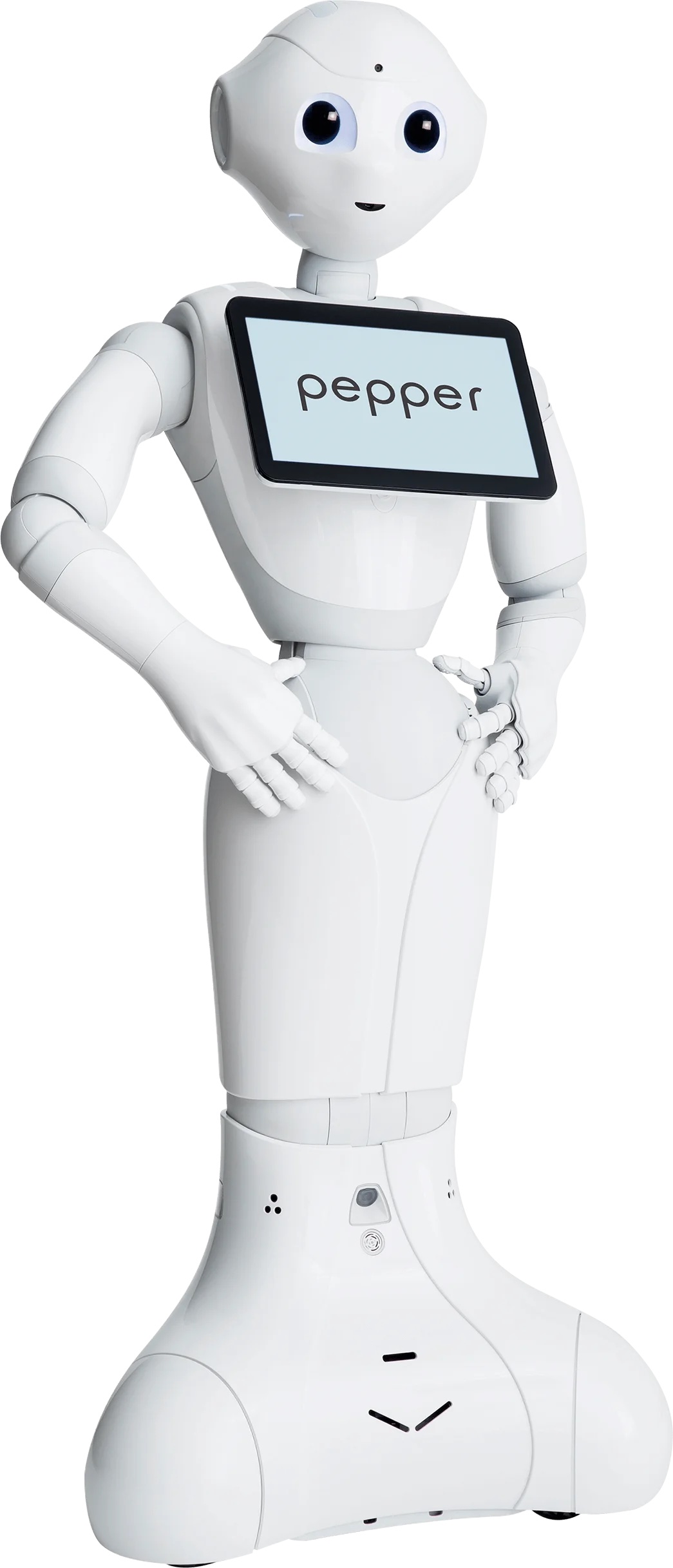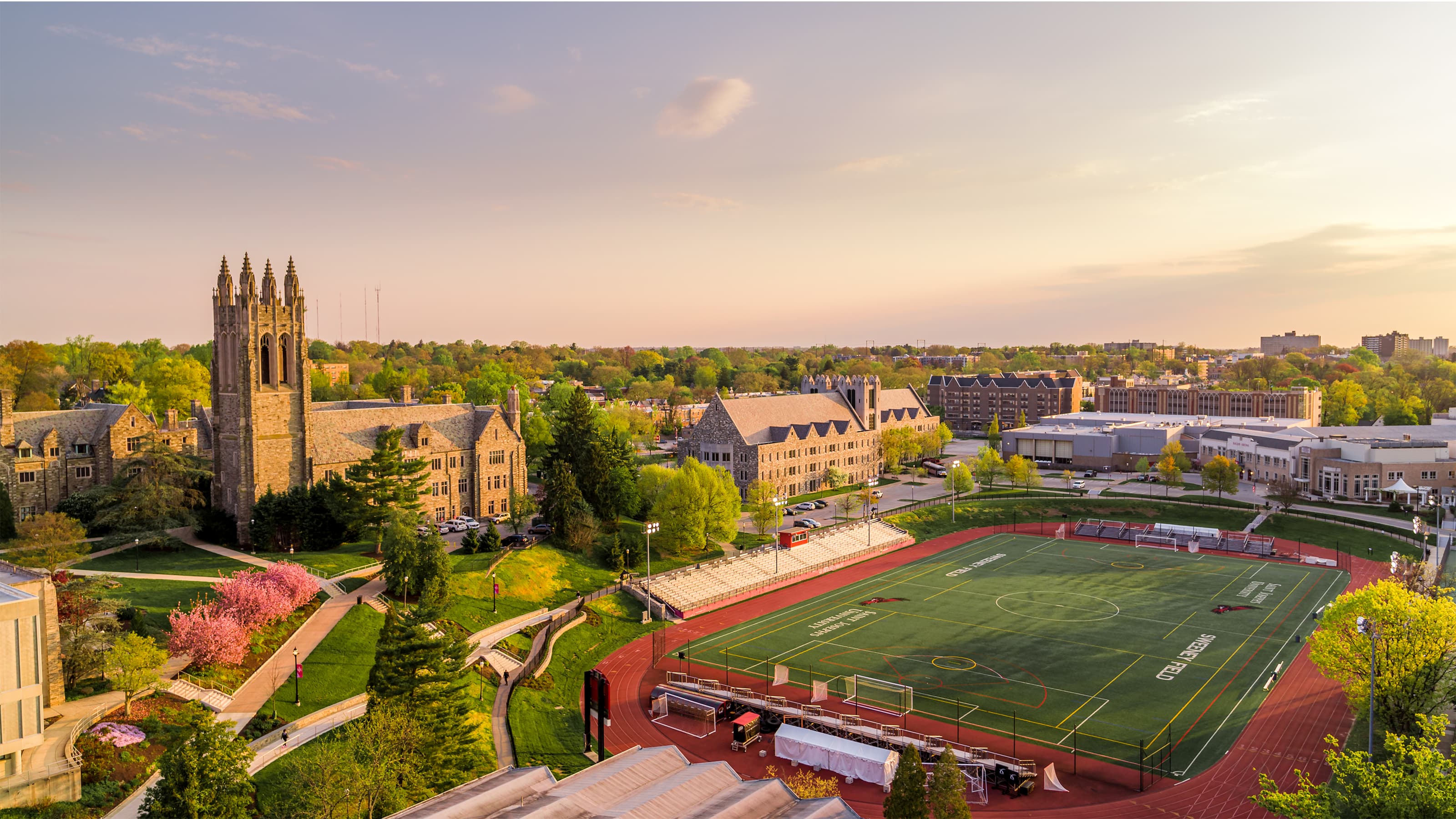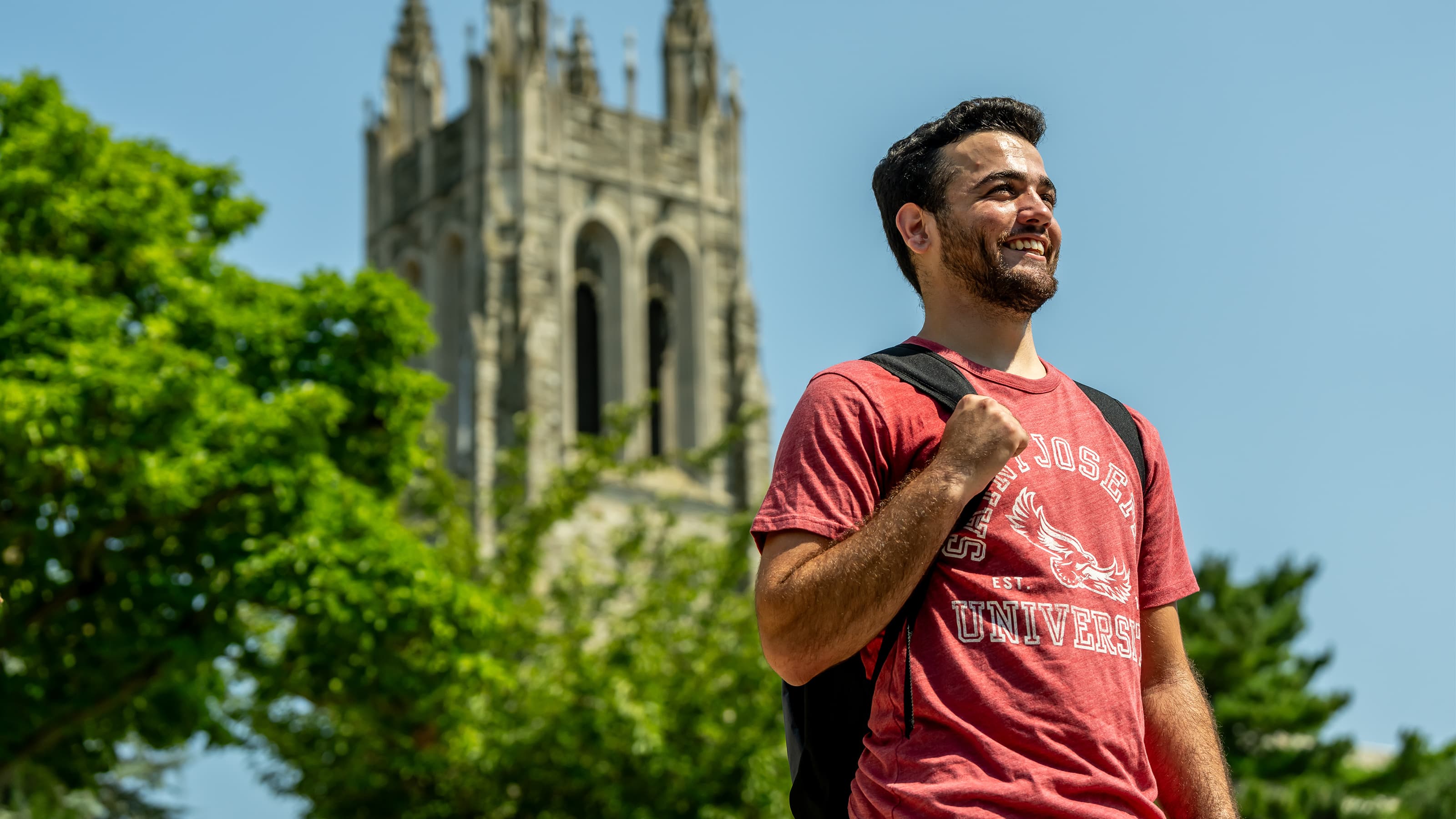Introducing Pepper, Saint Joseph’s Humanoid Robot
An initiative of the Haub School of Business’s Innovation Center, Pepper was coded by students during a mini hackathon before making its open house debut.
 Hawk Hosts and Haub Innovation Center students pose with Pepper during a Saint Joseph’s open house. Left to right: Kathryn Brutzman '24, Dylan Flynn '25 and Aidan Elm '25.
Hawk Hosts and Haub Innovation Center students pose with Pepper during a Saint Joseph’s open house. Left to right: Kathryn Brutzman '24, Dylan Flynn '25 and Aidan Elm '25.
Artificial intelligence is all around us, from our Zoom calls and car navigation systems, to our social media feeds and digital assistants like Siri and Alexa. Now, an artificially intelligent robot named Pepper can be seen greeting families on Saint Joseph’s campus and gliding down the halls of the Haub School of Business’s Mandeville Hall.

Standing at just four feet tall, Pepper is a fully programmable robot capable of conversations, expressive movements and even recognizing human emotion. It’s a humanoid robot, meaning that its shape resembles that of a human, complete with an articulating torso, limbs, head and hands.
Pepper arrived at Saint Joseph’s after Haub School of Business Dean Joseph A. DiAngelo Jr, EdD ’70 saw the robot at the Paris School of Business during an AACSB accreditation visit. The robot greeted DiAngelo and the accreditation team upon entering the building and proceeded to give the guests a tour of the school and its premises.
“It was impressive,” he says. “I knew Pepper would be a great way to promote our business school and give students the opportunity to engage in hands-on learning with artificial intelligence while having fun at the same time.”
Shipped less than a week before the University’s fall open house where Pepper would make its debut, Marcello Balduccini, PhD, assistant professor of decision and system sciences, and director of Haub Innovation Center (where Pepper is housed), organized a mini hackathon with undergraduate and graduate students to program the robot.
“We had the program written and running before Pepper was even at Saint Joseph’s because the software can be downloaded independently of the robot. But from Tuesday through Sunday, we had to work on the finishing touches,” Balduccini says, “much of which included the physical movements and motions of the joints. On the last day, we were in the lab from probably 7 a.m. to 9 p.m.”
Pepper comes with three different programming options to accommodate varying levels of expertise. The simplest option allows programmers to build a presentation that displays on the robot’s chest, which Pepper will show on a tablet and use its AI capabilities to make corresponding gestures. The other options include hard coding using a programming language like Python, and a middle-of-the-road option, which uses drag-and-drop functions to program Pepper’s movements, speech and tablet.
“We used the middle tier of programming and it was a huge success,” says Balduccini. “We had some students who had programming experience and some who had never programmed before. At first, those students weren’t interested in working on Pepper because they thought it was beyond their expertise, but once they saw us working together in the lab, they were intrigued and wanted to get involved.”
Among the students were Andrew Holmberg ’23, machine learning and artificial intelligence major, and Aidan Elm ’25, an information technology major.
“I was amazed by all that our team was able to accomplish in such a short amount of time. Many of us had prior programming experience, but nobody had directly worked on anything similar to the robot before. I think it was a real learning experience for everybody,” says Holmberg.
Elm adds, "Working with Pepper was an amazing experience! I have worked a lot with AI in the past, but the field of robotics is relatively new to me. Within the span of only a few days, we were able to set up Pepper and create a working demo for the open house. I am incredibly fortunate to be a part of this experience — it is because of everyone's hard work and determination that Pepper was ready in time."
Pepper’s premiere at the University’s open house in September was well received, during which the robot greeted and interacted with over 25 prospective students and their families. It also made an appearance at the October open house, and will record a clip for the AI and Analytics Conference next month, where it will welcome conference attendees and kick off the conference.
Artificial intelligence forces us to basically teach a computer how to solve problems in precise terms. It takes mental discipline and teaches students problem solving skills.
Marcello Balduccini, PhD
Assistant Professor of Decision and System Sciences, and Director of Haub Innovation Center“It’s been a great experience,” says Balduccini. “Artificial intelligence forces us to basically teach a computer how to solve problems in precise terms. It takes mental discipline and teaches students problem solving skills.”
Pepper isn’t the only futuristic technology housed in the Innovation Center; it also boasts home automation technology, including Google Home minis and WiFi-enabled outlets; Meta Quest virtual reality headsets; Ray Ban smart glasses and more.
Next semester, Balduccini plans to launch an initiative where students can submit proposals on how they’d like to leverage the Center’s technology. He’s also looking forward to better integrating the Center into the University’s ecosystem through workshops, classes and research opportunities.
“I see the physical space as a co-working space where faculty and students can each carry out their own activities and, through the magic of physical coexistence, start working together. The hope is that new and cooler things will ultimately come out of it.”
Interested in learning more about the Haub Innovation Center? Visit them online or stop by the Center in Mandeville Hall.



